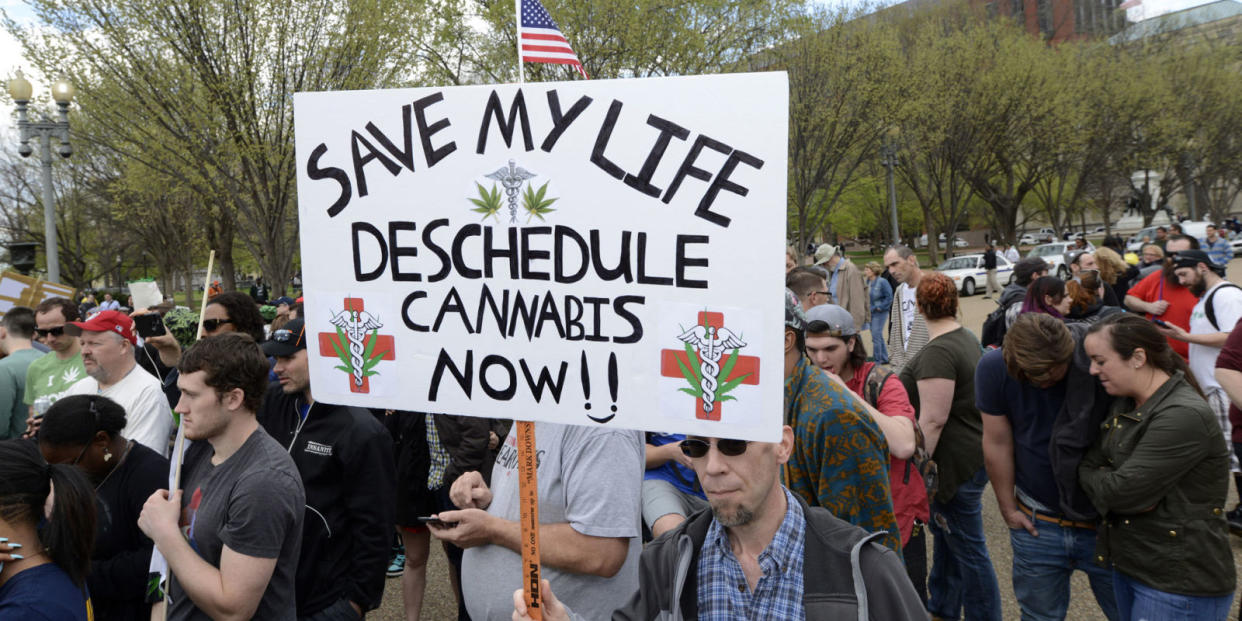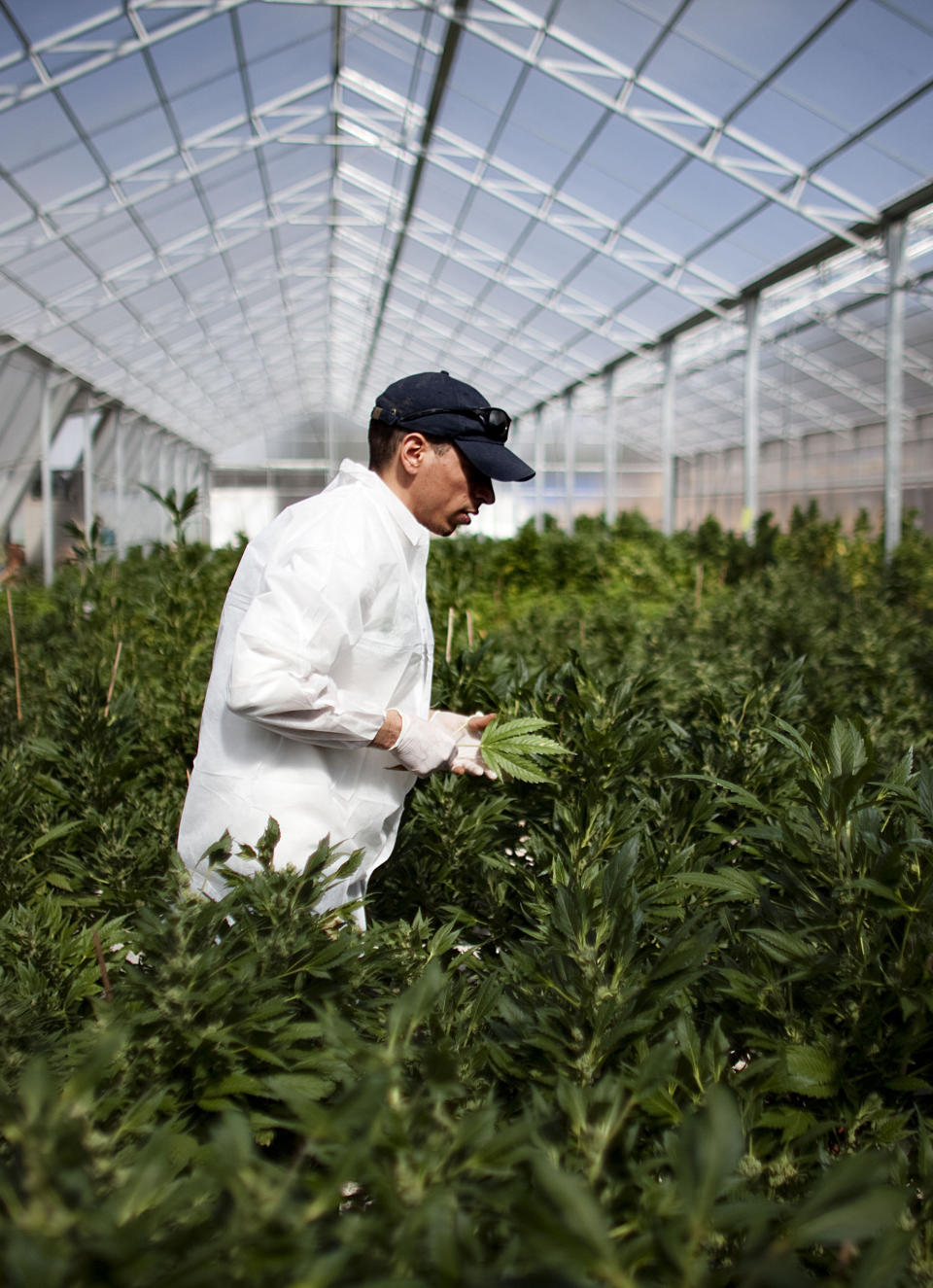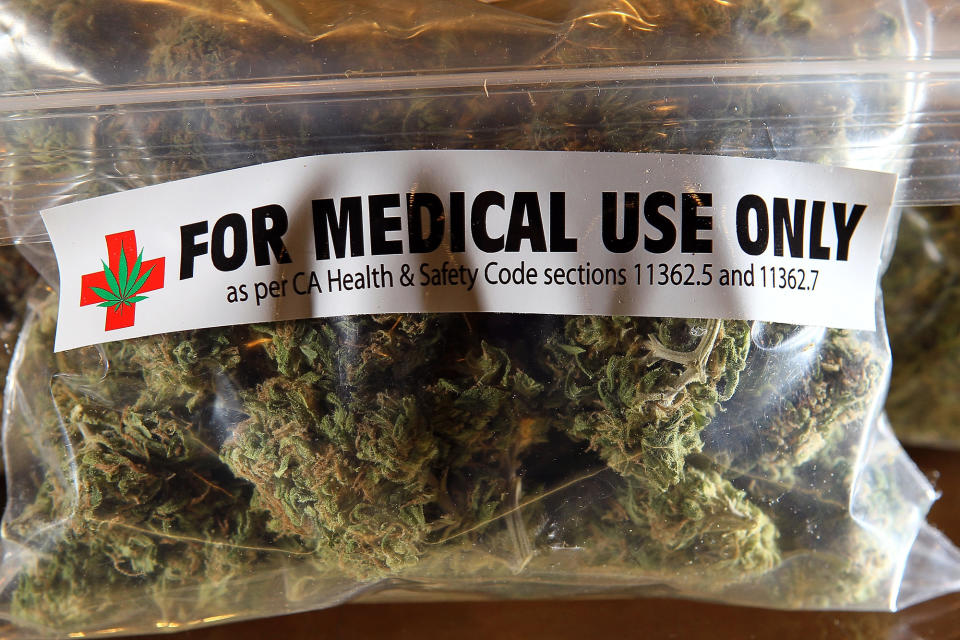Marijuana's Biggest Enemy Is Not Jeff Sessions–It's Big Pharma

Like most grassroots movements, cannabis legalization has its own bogeymen–nebulous entities backed by kings and queens of industry who are as feared as they are loathed. Big Tobacco is in there, of course, as are the corrections and law enforcement industries. But as marijuana gains legitimate footing as a bonafide medicine accepted by top health associations and medical journals–most notably as treatment for chronic and neuropathic pain–legalization's biggest villain is, perhaps, the well-heeled pharmaceutical industry.
Activists' worst fears about this David-versus-Goliath scenario have come true over the last six months. Recent news could very well represent a tipping point in Big Pharma's quest to squash voter-approved pot-legalizing initiatives while preserving the medical marijuana market for its own products: pills and sprays made of synthetic cannabis components such as THC and CBD.

This story begins in the months leading up to the 2016 election, when campaign finance records showed a major infusion of cash–$500,000–into the organization opposing Arizona's recreational marijuana initiative. According to Ballotpedia data, the donation was one of the largest individual contributions to any anti-legalization campaign in history. The Arizona-based company that donated the money, Insys Therapeutics, is best known for Subsys, a powerful fentanyl-based spray approved as a painkiller for cancer patients. As for Subsys' primary ingredient, the National Institute on Drug Abuse describes fentanyl as "a powerful synthetic opioid analgesic that is similar to morphine but is 50 to 100 times more potent." It is highly addictive and potentially deadly. (Prince fatally overdosed on fentanyl in April of last year.)
In November, Arizona was one of nine states voting on marijuana legalization measures. Some initiatives were shoe-ins, including Proposition 64 in neighboring California, while others, such as measures in Arkansas and North Dakota, were up for grabs. But Americans woke up on November 9 to the news that there would soon be eight newly legal cannabis markets scattered throughout the country. Nearly all of the initiatives had passed, and weed's major storylines that morning included a behemoth of a legal market in California, the first recreational laws on the East Coast in Maine and Massachusetts, and a Bible Belt surprise in the form of a medically legal Arkansas. The only measure that didn't pass on election day? Arizona, where Prop 205 was narrowly defeated in a 51-49 percent split.
Pro-Marijuana ballot measures passed in red states, but not Arizona. Why?
Insys' ties to America's full-throttle opioid market were newsworthy before the election on a number of levels. The company was (and is) facing multiple federal and state investigations into its aggressive sales and marketing practices; Insys or its personnel allegedly paid medical professionals to step up their Subsys prescriptions and also marketed the opioid for off-label use, a federally illegal act for pharmaceutical companies. Also worth noting, especially given the timeframe: 2016 was the year America's opioid problem blossomed into a federally recognized epidemic, and it was also the year significantly less-addictive cannabis gained traction as a possible alternative to opioids, luring progressive supporters like Elizabeth Warren to the cause.
But when Insys' half-million-dollar donation opposing weed legalization in Arizona became public, a lesser-known Insys product soon attracted the spotlight. The company's latest drug, Syndros, was a synthetic version of THC–and it had just been approved to treat nausea and weight loss in cancer and AIDS patients by the Food and Drug Administration in July 2016. At the time of the donation in late August, Syndros was awaiting scheduling and approval by the Drug Enforcement Administration; it received that preliminary approval and a Schedule II classification (meaning it has recognized medical value but is still considered dangerous) from the DEA late last week. Marijuana, of course, remains a Schedule I substance–classified among the world's most deadly drugs.

Insys' intentions have become crystal clear. The company, which can accurately be described as Big Pharma, paid $500,000 to halt a measure that would have legalized retail marijuana, just as it was preparing to debut a new synthetic drug (or two?) modeled entirely on marijuana's components. (Sure enough, Insys is now in the second phase of developing another cannabis-based drug to treat severe pediatric epilepsies, this one with CBD.)
"It appears they are trying to kill a non-pharmaceutical market for marijuana in order to line their own pockets," a spokesperson for the Arizona legalization campaign said in a statement at the time. More than 20 years into America's meandering history with legal medical cannabis, with public sentiment on marijuana legalization at a record high, Big Pharma was ready to claim its piece.
With public sentiment on marijuana legalization at a record high, Big Pharma was ready to claim its piece.
And this is only the beginning. The donation made by Insys surely helped the campaign against legalization in Arizona, and now it is quite likely that Arizona residents will have access to a Syndros script before they can purchase recreational marijuana. More importantly, it will always be remembered as one of Big Pharma's first public stiff-arms to legal weed–and likely a sign of battles we'll see in the years ahead.
When marijuana becomes even further normalized, federally rescheduled and decriminalized and, eventually, legalized throughout America–how hard will Big Pharma be fighting for a piece of that industry?
My guess: We haven't seen anything just yet.
Editor's note: This story has been updated to reflect the fact that medical marijuana is legal in Arizona, and that voters passed on the recreational initiative.
You Might Also Like

